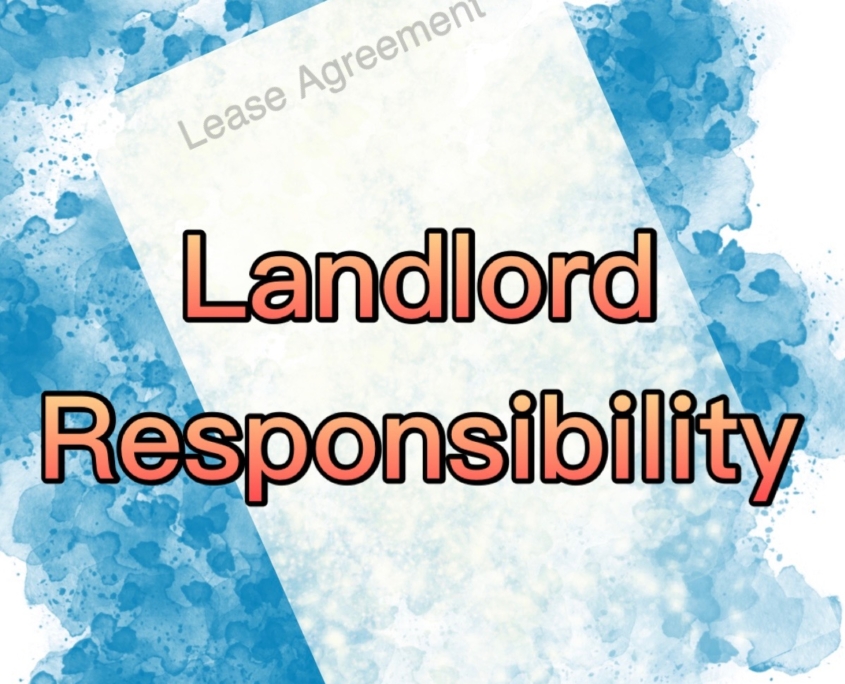Landlord Must Protect Tenants from Unsafe Conditions
Hiring a maintenance company does not change Landlord responsibilities to keep an apartment or home well maintained and safe for tenants.
By Rebecca Martin
The word, Landlord, brings up different connotations in people’s minds. Whether it is the actual property owner, or the managerial agent delegated to the task of responding to tenant needs, there are certain conditions which are to be met. The official definition of a landlord is one who rents a property to another party in exchange for rent payments. It is an old term which has roots in feudalism where the landowners were actual lords. Most property was owned by political or military powers and land was leased to their subjects. Today, a landlord could be anything from a sole person renting out a room in their house to a massive corporation owning hundreds of rental properties. When one enters into a rental or leasing contract with a landlord, there is an implied obligation that certain conditions have been met that provide for the reasonable safety of the tenant.

A Landlord remains liable for all injuries on the rental property if the landlord didn’t take reasonable care to keep the premises safe.
State and local laws lay out the legal responsibilities of landlords, with additional court decisions clarifying specific points within those laws. Covered within these legal guidelines is the landlord’s duty to repair and maintain in order to prevent an unreasonable risk of harm to the tenant, often referred to by the legal term warranty of habitability.
“All rental properties must be fit and habitable, meaning that the landlord must maintain the property throughout the rental term. Landlords have a duty to repair and maintain the property, including fixing problems that are reported by tenants. Any hazards that cannot be addressed immediately should be noted by the landlord, and tenants should be made aware of their presence through a written notification or posted signage.” https://www.justia.com/real-estate/landlord-tenant/information-for-landlords/landlords-liability-for-tenant-safety/
Some property owners opt for a resident property manager or a property management company. This does not transfer the landlord liability or the expectation that the landlord is complying with state and local laws for property maintenance. The landlord is responsible for fully vetting those they have delegated duties to. Such property management duties would include seeking references, credit reports and background checks. With a property management firm which does its own hiring, the agreement is understood to be between the landlord and the property management firm.
Landlord Hiring Management Company Only Adds Responsible Party
Such agreements between a landlord and management should contain expectations for how maintenance will be handled. The landlord should foresee issues that could arise and be aware of the liabilities they might be exposed to should management fall short in their duties.
Within the scope of premises liability then we can really see no instance which would recuse a landlord from liability in the case of negligence in maintaining fuel-burning devices such as boilers and hot water heaters, and most especially in cases in which tenants have brought the problem to the attention of management. Subpar installation or inadequate maintenance of these devices is not something readily apparent to tenants. The landlord cannot, in most instances, place the fault with the management team they have hired to deal with these issues. The landlord has the ultimate responsibility in insuring that the premises are safely habitable by their tenants and that includes a diligent plan in maintaining all fuel-burning devices and insuring that any problems which arise are dealt with in a timely manner. There is no such thing as mild carbon monoxide exposure and the presence of any level of carbon monoxide can cause permanent injury or turn deadly instantly.
On April 19, 2023, tenants under the care of Katz Realty Management, experienced the real life illustration of this issue. High levels of carbon monoxide were found in their apartments at 290 Clinton Street in Cobble Hill, Brooklyn. Cobble Hill is one of two of the most desirable neighborhoods in New York City town for its tree-lined streets and spectacular view of the New York skyline.
That Wednesday morning tenants awoke feeling faint and called 911.
“FDNY officials say the carbon monoxide readings were above 160 parts-per-million, attributing the problem to a defective oil burner.” https://brooklyn.news12.com/cobble-hill-tenants-say-calls-about-high-carbon-monoxide-levels-have-gone-unanswered
But tenants said this was not the first and only time they have experienced the effects of carbon monoxide poisoning. One resident said this was the third time the fire department had been called and calls to property management had gone unanswered for months. Property management responded that they had sent out a boiler company to clean the chimney which had been depositing soot through cracks and electrical outlets and to repair the boiler in response to tenant’s complaints. With readings of 160 ppm, unconsciousness and death are possible. Clearly, the response to the problem was not adequate and tragedy might have ensued. Months of exposure to elevated carbon monoxide most likely resulted in long-term damages even if those damages have gone undiagnosed.
“Ideally, landlords will be proactive in preventing carbon monoxide poisoning in their rentals. Installing carbon monoxide detectors is a simple preventive measure any landlord can take: they’re inexpensive, and usually easy to put in (many models are battery-powered or plug-in with backup batteries).” https://www.alllaw.com/articles/nolo/personal-injury/carbon-monoxide-exposure-poisoning-landlord-liability.html
Every state, except Alabama, requires that landlords provide safe premises which do not damage the health of their tenants. This is a legal understanding even if the rental agreement or lease does not explicitly mention this condition of tenancy. Above all, the responsibility of the landlord is to provide safe and habitable living conditions. In most states today, carbon monoxide detectors are required in all rentals.
For more on specific landlord maintenance responsibilities, click here.
To check your state for laws regarding carbon monoxide detectors in rentals, go to Carbon Monoxide Detector Requirements Laws and Regulations https://www.ncsl.org/environment-and-natural-resources/carbon-monoxide-detector-requirements-laws-and-regulations
.

Leave a Reply
Want to join the discussion?Feel free to contribute!